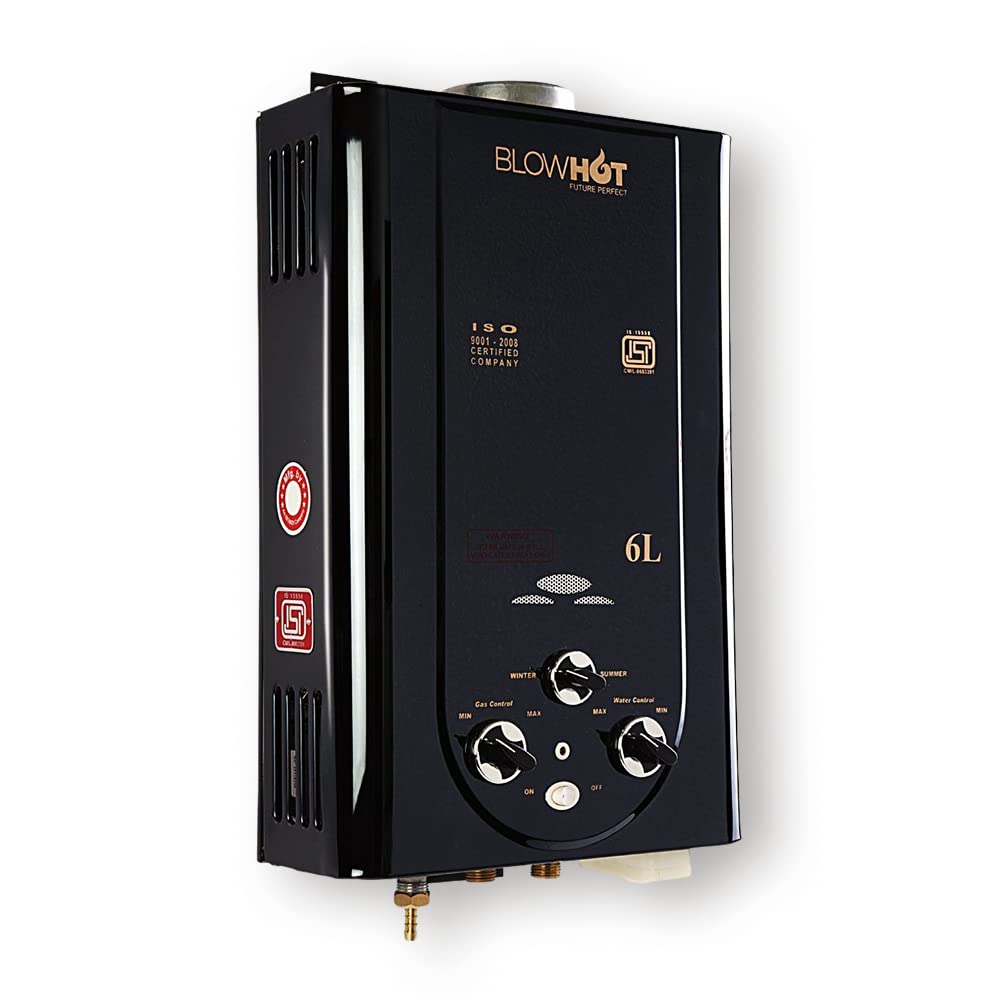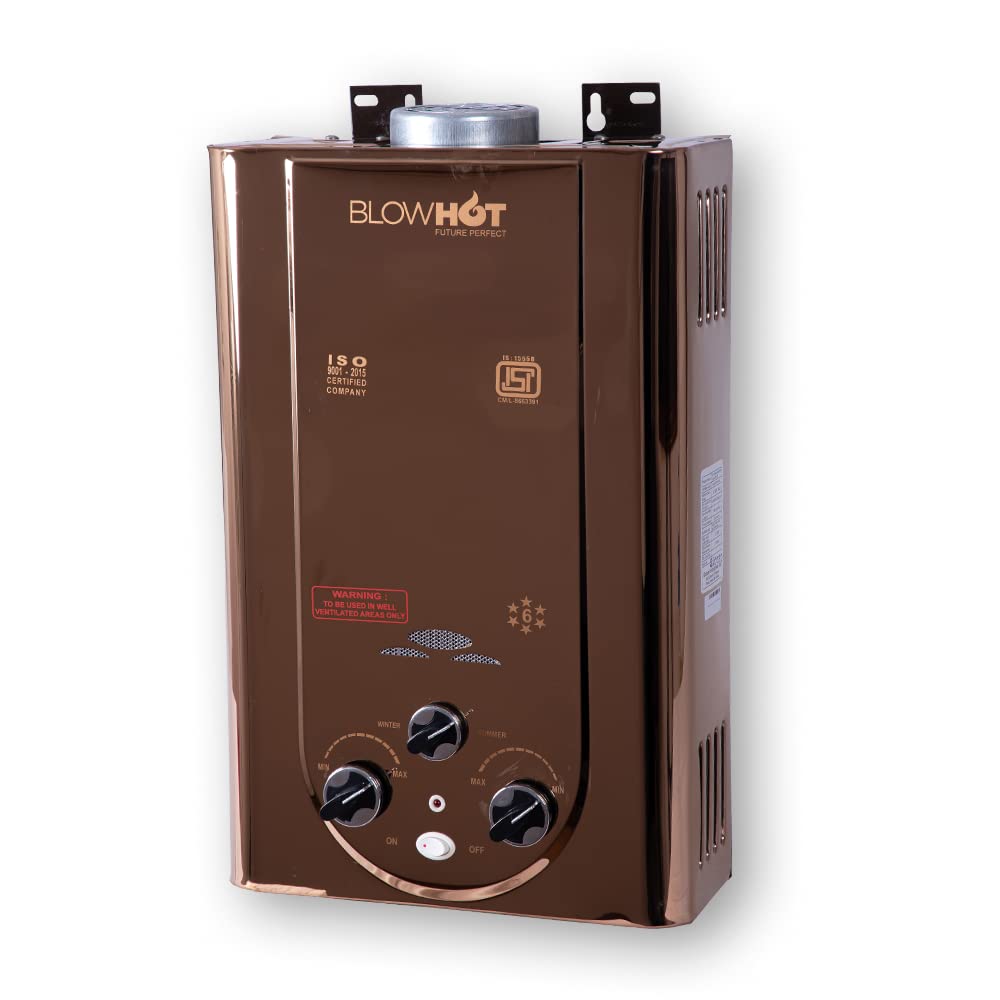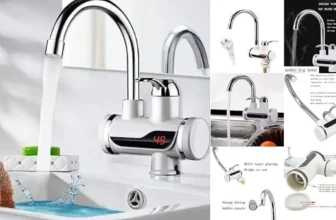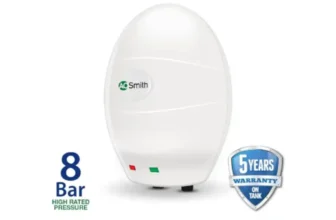Gas Geyser | Gas Water Heater: A Complete Guide for 2024
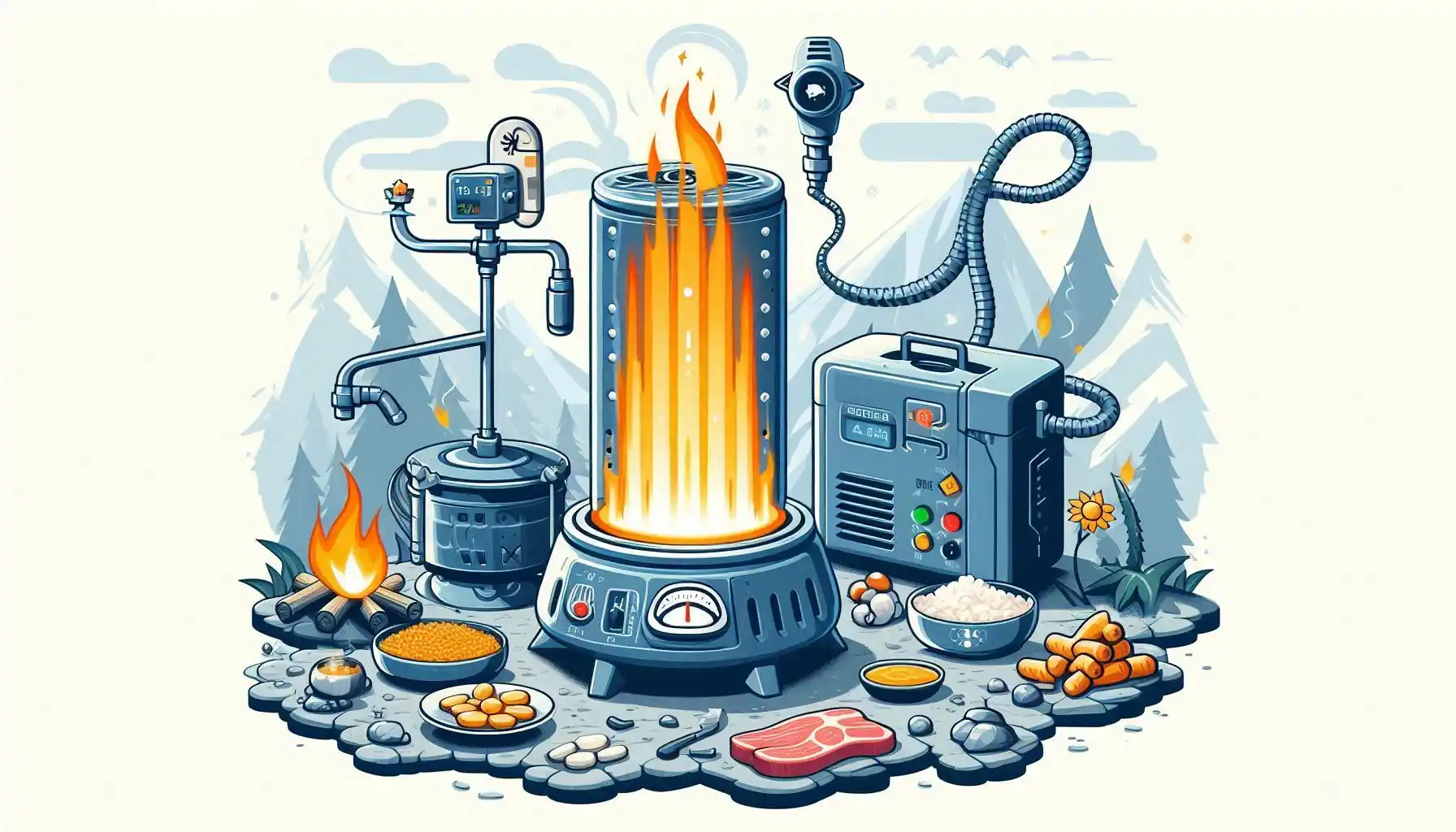
Gas geysers have become a staple in many households due to their efficiency and convenience. But what exactly is a gas geyser, and why has its popularity soared in recent years? This article will walk you through everything you need to know about gas geysers, from how they work to their benefits, installation, maintenance, and much more.
Table of Contents
What is a Gas Geyser?
Simply put, a gas geyser is a device that heats water using gas, typically LPG or natural gas. Unlike electric geysers, which rely on electricity to heat the water, a gas geyser uses the combustion of gas to provide instant hot water on demand. This makes them an energy-efficient choice for many homeowners.
The Growing Popularity of Gas Geysers
With increasing awareness about energy consumption and cost-effective solutions, gas geysers have gained massive popularity, especially in countries where natural gas is abundant and affordable. Their faster heating times and lower running costs make them an attractive option for homes that need consistent hot water.
How Does a Gas Geyser Work?
Understanding the Basics
A gas geyser works by igniting gas (LPG or natural gas) which then heats a heat exchanger or coil. Cold water enters the geyser, and as it flows through the coil, the heat from the gas warms the water. The heated water then exits the geyser and flows to your taps or shower.
Gas Geyser Components
Key components of a gas geyser include the gas burner, heat exchanger, thermostat, pressure valve, and exhaust vent. These parts work together to ensure that the water is heated quickly, safely, and efficiently.
The Heating Process
When you turn on the hot water tap, cold water enters the geyser. The gas burner ignites and begins heating the water in the heat exchanger. Once the water reaches the desired temperature, the flow of gas is automatically regulated, ensuring the water remains at a steady warmth.
Benefits of Using a Gas Geyser
Faster Heating Time
Gas geysers are known for their ability to heat water much faster than electric geysers. The moment the gas burner ignites, the water starts heating up immediately, making it ideal for those who need hot water in a hurry.
Energy Efficiency
Gas geysers consume less energy compared to electric geysers. They only heat the water that’s being used, eliminating the need to keep a large tank of water hot constantly.
Cost-Effective
Over time, a gas geyser proves to be more economical. While the initial cost of installation may be higher than an electric geyser, the savings on energy bills make it a worthwhile investment in the long run.
Convenience and Reliability
Gas geysers are designed to work efficiently even in power outages. Unlike electric geysers, which depend on electricity, gas geysers continue to function as long as there’s gas supply, making them a reliable option.
Types of Gas Geysers
Instant Gas Geysers
Instant gas geysers, also known as tankless geysers, heat water on demand. They don’t store water but rather heat it instantly as it flows through the device.
Storage Gas Geysers
Storage gas geysers come with a tank that stores hot water. Once the water reaches the set temperature, it stays hot until you use it. These geysers are suitable for families that need a constant supply of hot water.
Tankless Gas Geysers
Tankless gas geysers are similar to instant geysers but are more compact and often designed for single-use purposes like a shower. They provide hot water only when needed, saving on space and energy.
Choosing the Right Gas Geyser for Your Home
Factors to Consider
When selecting a gas geyser, you need to consider factors such as the size of your household, water usage, and available space. Choosing the right capacity is essential to ensure that your geyser meets the demand without wasting energy.
Size and Capacity
Gas geysers come in various sizes. For a small household, a 6-8 liter capacity may suffice, while larger families may require geysers with a capacity of 10-12 liters or more.
Water Flow Rate
The water flow rate indicates how much water the geyser can heat in a given time. Ensure that the geyser’s flow rate matches your home’s requirements, especially if you have multiple taps or showers running simultaneously.
Safety Features
Look for safety features like flame failure protection, which automatically cuts off the gas supply if the flame goes out, and over-temperature protection to avoid overheating.
Top 5 Best Gas Geyser Water Heater Price
BLOWHOT Wall Gas Geyser 6 Litres Limited time deal
Bajaj Majesty Duetto Gas 6 Ltr Vertical Water Heater Best Values
Havells Flagro 5.5 Litre Instant Lpg Water Heater
V-Guard Brio 6 Litre Gas wall Water Geyser
BLOWHOT Gas Geyser 6 Litres
Safety Measures for Gas Geysers
Carbon Monoxide Risk
One of the primary safety concerns with gas geysers is the potential for carbon monoxide buildup. It’s essential to install your gas geyser in a well-ventilated area to prevent this.
Ventilation Requirements
Gas geysers require proper ventilation to expel the gases produced during combustion. Always ensure your geyser has adequate venting, and don’t block the exhaust pipe.
Regular Maintenance
Routine maintenance is critical to ensure that your gas geyser functions safely and efficiently. Periodic checks and servicing by professionals will prevent accidents and extend the lifespan of the appliance.
Installation of a Gas Geyser
Professional Installation vs DIY
Gas geysers should ideally be installed by a qualified professional. Improper installation can lead to safety hazards like gas leaks and inefficient operation.
Placement and Location
Install your gas geyser in a place where it’s easy to access and ensure that there’s enough space for proper ventilation. Avoid installing it in small, confined areas like bathrooms without ventilation.
Common Problems with Gas Geysers and Solutions
No Hot Water
If your gas geyser isn’t producing hot water, check for issues like a gas supply interruption or a malfunctioning thermostat. In some cases, a blocked filter or vent could be the cause.
Low Water Pressure
Low water pressure can affect the geyser’s performance. Check if the pressure valve is functioning correctly, and clean any clogged filters that might restrict water flow.
Pilot Light Issues
If the pilot light keeps going out, it may be due to a faulty thermocouple or a blocked gas line. Professional repair is often required to fix this issue.
Gas Geyser vs Electric Geyser: A Comparison
Pros and Cons of Each
Gas geysers are more energy-efficient and provide instant hot water, whereas electric geysers can be slower and higher in running costs. However, electric geysers can be safer to operate in areas where ventilation might be a concern.
Which One is Right for You?
If you live in an area with a consistent gas supply and need hot water quickly, a gas geyser might be the best option. On the other hand, if you prefer a simpler setup with fewer safety concerns, an electric geyser might be more suitable.
How to Maintain Your Gas Geyser?
Routine Maintenance Tips
Regularly check the gas burner and clean any debris. Ensure the gas lines are free from leaks, and check the water filter for blockages.
Cleaning and Flushing
Flushing your geyser annually helps remove any built-up sediment and scale, ensuring optimal performance.
Checking Gas Lines
Inspect the gas lines for any signs of leaks or damage. If you notice any issues, contact a professional immediately to avoid safety risks.
Cost of Gas Geysers
Average Prices in the Market
Gas geysers are available at various price points depending on the brand, size, and features. On average, prices range from $100 to $400.
Installation Costs
The installation cost of a gas geyser may range from $50 to $150, depending on the complexity of the installation.
Long-term Savings
Although gas geysers can be expensive to purchase initially, their energy efficiency translates into significant savings on energy bills over time.
Top Gas Geyser Brands in the Market
Popular Brands and Their Features
Some of the top brands in the gas geyser market include Bosch, Rheem, and AO Smith. These brands offer reliable and efficient models with advanced features like automatic temperature control and energy-saving technology.
Consumer Ratings and Reviews
Before purchasing a gas geyser, always check consumer reviews to ensure that the product meets your needs and expectations.
Gas Geyser vs Solar Water Heater
Comparing the Efficiency
Solar water heaters are more eco-friendly and cost-effective in the long term, but gas geysers are faster and more reliable, especially in areas with inconsistent sunlight.
Environmental Impact
While solar heaters use renewable energy, gas geysers rely on fossil fuels, which can contribute to environmental pollution.
Which is Better for Your Home?
If you live in a sunny area and want to reduce your carbon footprint, a solar water heater might be a good choice. However, for quick, reliable hot water, a gas geyser may be more practical.
Troubleshooting Gas Geysers
Common Troubleshooting Tips
If your gas geyser is malfunctioning, start by checking the gas supply and water pressure. Ensure the burner is clean and the pilot light is on. If the issue persists, call a professional.
When to Call a Professional
If you suspect a gas leak, electrical malfunction, or complicated issue, it’s essential to contact a licensed technician for repairs.
Conclusion
Gas geysers are a reliable, energy-efficient, and cost-effective solution for households that require a constant supply of hot water. By understanding how they work, choosing the right model, and maintaining it properly, you can enjoy hot water on demand for years to come.
Are gas geysers the right choice for you? If you value fast heating and low operating costs, a gas geyser could be a fantastic addition to your home.
FAQs
How long does a gas geyser last?
A well-maintained gas geyser can last between 10-15 years.
Is it safe to use a gas geyser indoors?
Yes, but make sure it is installed with proper ventilation to prevent the buildup of harmful gases.
What is the average cost of a gas geyser?
Gas geysers typically cost between $100 and $400, depending on size and brand.
Can I install a gas geyser myself?
It’s recommended to hire a professional for installation to ensure safety and proper functioning.
What maintenance does a gas geyser require?
Regular checks on the burner, water filter, and gas lines, along with annual flushing, will help maintain your geyser.
Read More:-
Everything You Need to Know About Gas Water Heaters
Finding the Perfect Racold Geyser 2023: A Comprehensive Review and Buying Guide
Crompton Arno Neo 15-L 5 Star Rated Storage Water Heater Review
Endless Comfort: Exploring AO Smith Instant Water Heaters
